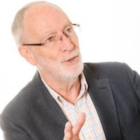While working virtually has its benefits, spending time away from colleagues, often isolated at home, can have an overwhelming impact on employee motivation. According to a YouGov survey commissioned by Aster, more than a third (37%) of senior business decision makers say it has become harder to motivate their employees since the onset of Covid-19.
Deloitte’s Carolyn Hicks said that as well as making leadership more accessible, “purpose is a key motivating factor” in driving employee engagement. “Having a core purpose at the heart of what you’re trying to do is critical to the effectiveness of an organisation,” she argued.
Businesses like Aster, a housing association, have social value at their core, arguably making it easier for employees to engage with the organisation’s mission. But for brands whose purpose isn’t as clear, Rachel advised businesses to “look at things through the individual’s rather than the organisation’s lens”.
Rishi said Rabobank noticed a dip in younger employees’ motivation levels at the peak of the crisis, so the bank launched purpose-driven initiatives “to connect people to our core values and to their communities”. These events – held virtually – saw engagement levels increase rapidly.
Sharon added that through CCEP’s Just Be Ambassadors, who work across various diversity streams to promote equality of opportunity, the business can connect people who wouldn’t normally work together, to champion causes close to their hearts. “It truly gives people a sense of purpose and makes them motivated to ask, ‘How can I be involved in that?’”

















